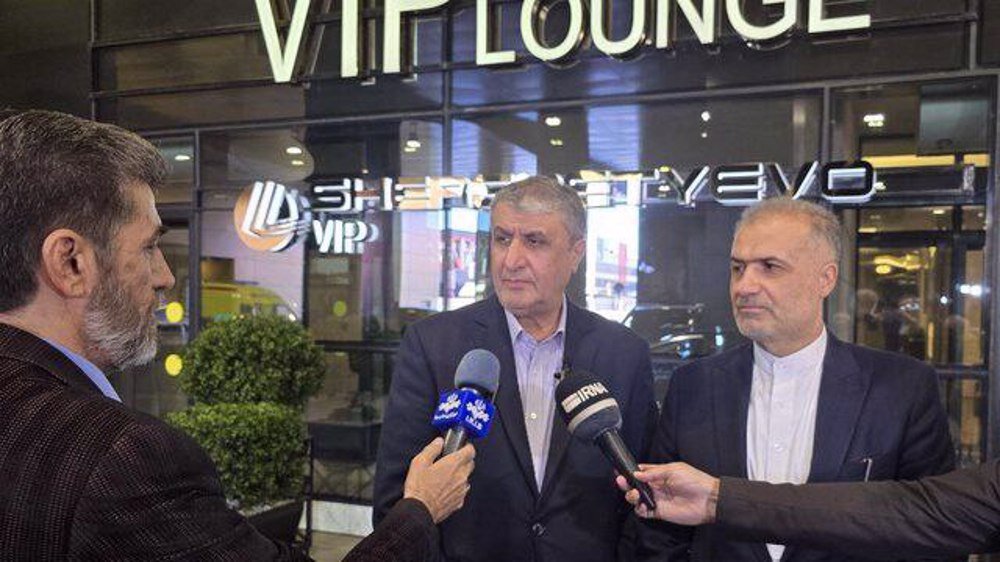Iran, Russia to seal new nuclear power plant agreements: AEOI chief

TEHRAN – Iran’s top nuclear official says Tehran and Moscow are set to sign fresh agreements on the construction of additional nuclear power plants in Iran during his official visit to Russia this week.
Mohammad Eslami, head of the Atomic Energy Organization of Iran (AEOI) and a vice president, arrived in Moscow on Monday leading a high-ranking delegation. His trip coincides with World Atomic Week events, taking place in the Russian capital from September 25 to 29, and includes meetings with senior Russian officials.
Speaking to reporters upon arrival, Eslami said that under an existing contract between the two governments, Russia is tasked with building eight nuclear power plants in Iran, four of which are already underway in the southern port city of Bushehr.
He explained that Tehran had informed Moscow about the construction of the remaining plants and that necessary studies and negotiations for the second phase of the contract had already been finalized. “The locations have been chosen, prepared, and equipped,” he noted, adding that once the new agreement is concluded later this week, work will immediately move into the operational phase of design, engineering, and implementation.
Turning to Iran’s relations with the International Atomic Energy Agency (IAEA), Eslami stressed that Tehran has consistently upheld its safeguard commitments and continues to pursue a peaceful nuclear program. At the same time, he criticized the European troika of Britain, France, and Germany for what he called their “politicized” approach, urging them not to undermine the credibility of the United Nations and international institutions.
“The European countries should allow world bodies to carry out their duties impartially and professionally within the framework of international regulations,” Eslami said. He warned that their current conduct obstructs peace and runs counter to international law.
Eslami also denounced the IAEA for failing to condemn US and Israeli “terrorist attacks” in June against three Iranian nuclear facilities under the Agency’s supervision. “The Agency’s silence shows the destructive influence running deep within it,” he charged.
Iran says Israel launched a surprise war on June 13, targeting senior military commanders, nuclear scientists, and civilians. Days later, the United States joined the conflict, striking three Iranian nuclear sites in what Tehran has called a flagrant violation of the UN Charter, international law, and the Nuclear Non-Proliferation Treaty (NPT).
The developments come against the backdrop of renewed nuclear tensions. On Friday, the UN Security Council failed to adopt a resolution that would have blocked the reimposition of sanctions on Iran after Britain, France, and Germany activated the so-called “snapback” mechanism, accusing Tehran of breaching the 2015 nuclear deal, formally known as the Joint Comprehensive Plan of Action (JCPOA).
Tehran dismissed the move as “illegitimate,” noting that the United States had already abandoned the accord in 2018. Iranian officials accused the European powers of siding with Washington’s sanctions instead of fulfilling their own obligations under the deal.
